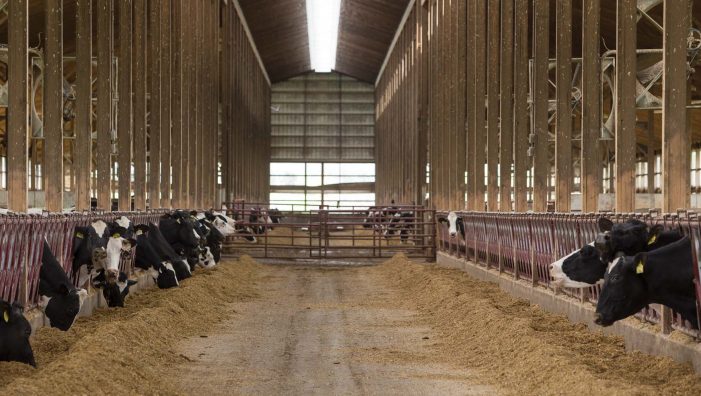Applications for Ohio Farm Bureau Health Plans now available
Members have three ways to apply: contacting a certified agent, calling 833-468-4280 or visiting ohiofarmbureauhealthplans.org.
Read More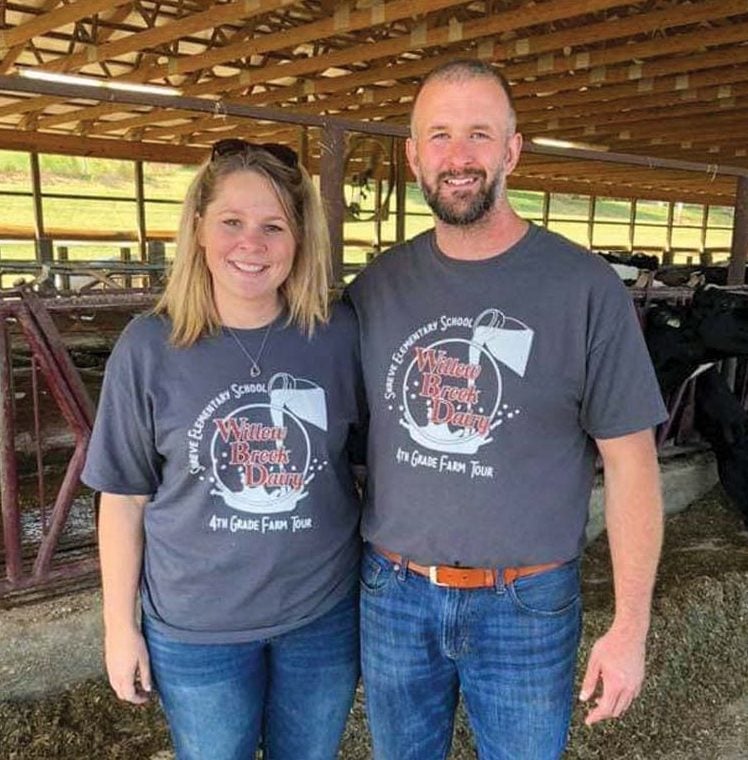
The phone call April 3 stunned Kevin Spreng. He was going to have to dump more than 700 gallons of milk on his Shreve farm, Willow Brook Dairy. The reason? His milk processor, Dairymens Inc., was over capacity for milk because of the COVID-19 pandemic. With schools closed down and restaurants limited to carry out because of Ohio’s state-at-home order, Dairymens had abruptly lost many of its customers and couldn’t store the perishable product.
“I had to dump a day’s worth of milk because demand for milk in the food service industry came to a halt. Fortunately, I only had to dump milk once so that’s been the silver lining,” said Spreng, a Wayne County Farm Bureau member who took over the family dairy in 2010 and has expanded it over the past few years. Spreng shared his story with a Cleveland television station and it aired less than 48 hours after he dumped about $1,200 worth of milk.
Ironically, at the same time that Spreng and others were dumping milk, some stores had started limiting the amount of milk that could be purchased, giving the false impression there was a milk shortage. In reality, it was a logistics problem that righted itself when Ohio Farm Bureau, American Dairy Association Mideast (ADA Mideast) and other organizations joined forces to contact stores and ask that they lift their limits because there is plenty of milk to meet their needs. Spreng and other Farm Bureau members helped by visiting area stores to see which ones were limiting milk and sharing that information with ADA Mideast, which represents dairy farmers in Ohio and West Virginia.
“We had over 2,000 reports of stores limiting milk and while some were duplicates, it was still a lot,” said Scott Higgins, CEO of ADA Mideast and Ohio Dairy Producer’s Association. “Farm Bureau was very helpful with its social media campaign, which helped raise awareness that there was not a milk shortage and that stores needed to order more. We were successful in getting those signs limiting milk taken down.”
This endeavor was “a great example of the grassroots and collaborative nature of Ohio Farm Bureau. Our county Farm Bureau members are the eyes and ears of the organization and let us know about the issues impacting their livelihoods and communities,” said Frank Burkett III, president of Ohio Farm Bureau and a dairy farmer in Stark County.
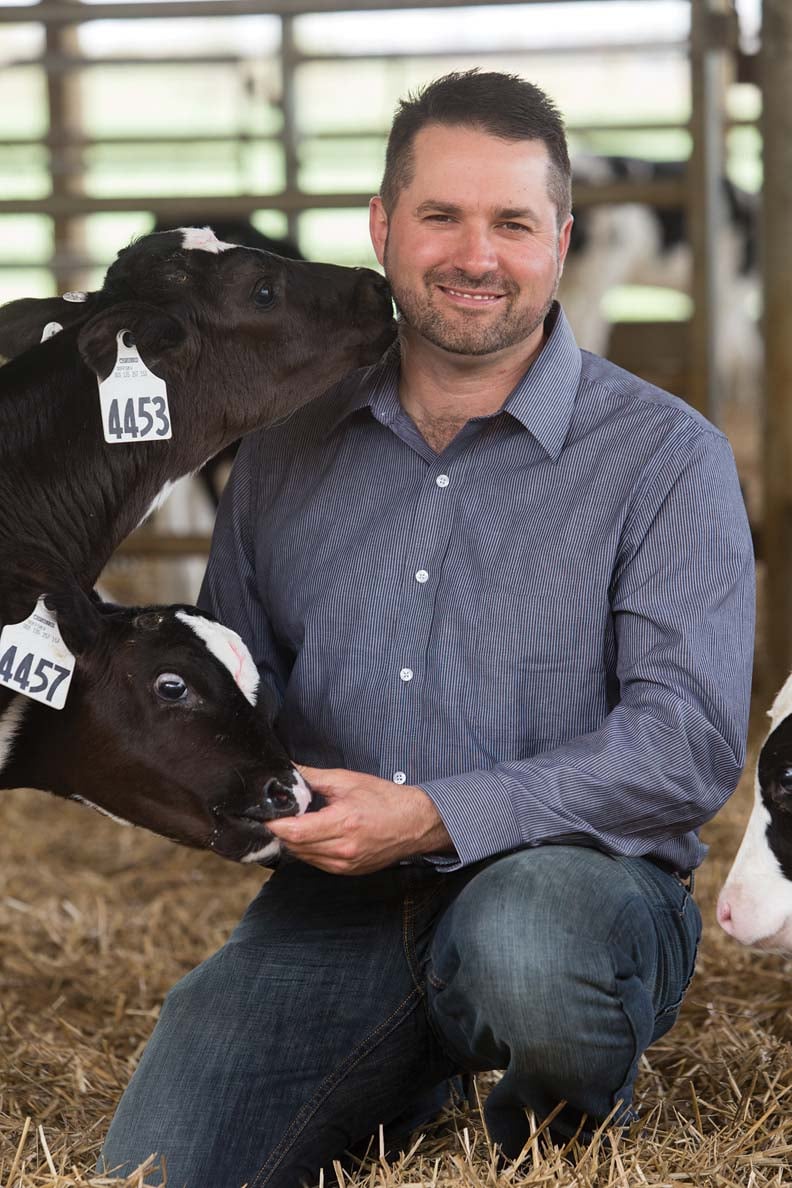
On the national level during the COVID-19 pandemic, Farm Bureau worked with the U.S. Department of Agriculture to promote assistance to regional and local food banks to purchase $3 billion of dairy, meat and produce. In Ohio, Gov. Mike DeWine allocated almost $5 million in emergency funding to the Ohio Association of Foodbanks with $1 million earmarked for the purchase of surplus Ohio-made agricultural products.
“Ohio Dairy Producers Association and ADA Mideast rallied on behalf of Ohio’s dairy farmers to help fulfill the needs expressed by the Ohio Association of Foodbanks. Over $1 million was used to buy dairy products for food banks,” Higgins said.
As a fifth-generation dairy farmer, Burkett and his family have weathered many challenges but the last six years have been particularly trying for the dairy industry. Milk prices plummeted to record lows and milk consumption was down. With profit margins already slim, hundreds of dairy farms went out of business in Ohio. In January 2017, there were 2,647 dairy farms in Ohio; today there are about 1,750.
Concerned about the future of the U.S. dairy industry, American Farm Bureau conceived and created a new dairy revenue insurance program, Dairy Revenue Protection, which went into effect in 2018. The program is projected to disburse hundreds of millions of dollars this year directly to dairy farmers.
“Having a variety of risk management tools is important for dairy farmers because it helps level out the ups and downs of the markets,” Higgins said. “The resources that Farm Bureau brings to the agricultural industry are essential.”
In 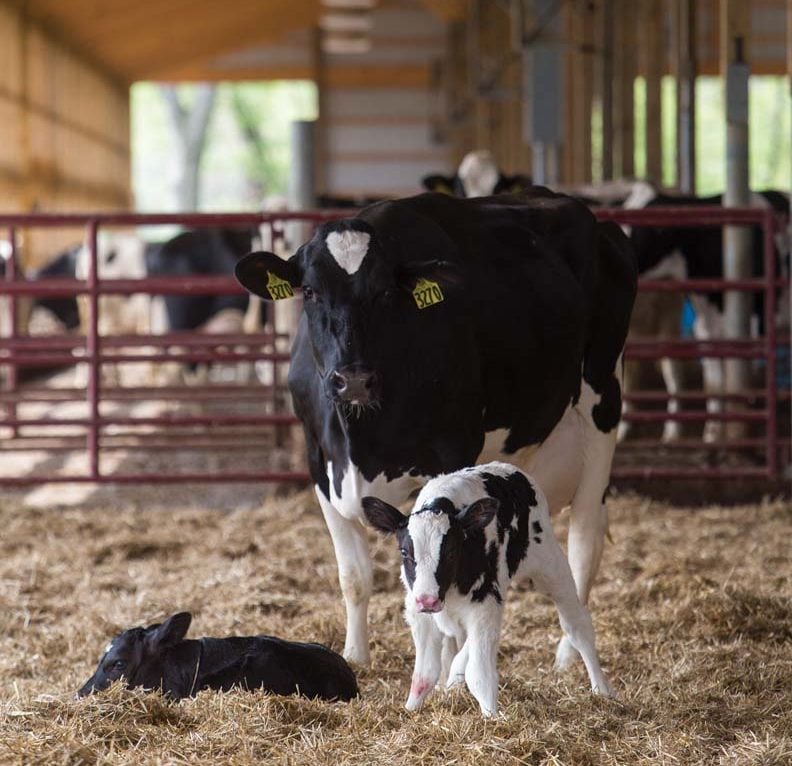 2019, American Farm Bureau assembled a task force that reviewed and made recommendations for modernizing and improving federal dairy policy. The task force consisted of Farm Bureau members and prominent dairy industry stakeholders, including former USDA Secretary and current U.S. Dairy Export Council CEO Tom Vilsack.
2019, American Farm Bureau assembled a task force that reviewed and made recommendations for modernizing and improving federal dairy policy. The task force consisted of Farm Bureau members and prominent dairy industry stakeholders, including former USDA Secretary and current U.S. Dairy Export Council CEO Tom Vilsack.
“Last fall, milk and dairy prices were starting to trend back up, and we could see some light at the end of the tunnel but then the coronavirus happened,” said Burkett, who co-owns and manages Clardale Farms and also co-owns Hills Supply, a dairy supply business. “While we didn’t have to dump milk, so many others did. It’s devastating to put that much work into something that you’re so passionate about and then have to dump it simply because it couldn’t be picked up.”
Higgins said ADA Mideast often looks to Farm Bureau and other organizations for help with issues that can’t be funded through the organization’s dairy checkoff, which generated $5.1 million last year. Dairy producers nationwide pay 15 cents and dairy importers pay 7.5 cents for every hundred pounds of milk they sell or import into the generic dairy product promotion fund. Higgins knows environmental stewardship is a key issue for farmers, and he previously served as co-chair of the Ohio Agriculture Conservation Initiative. OACI, of which Ohio Farm Bureau is a member, consists of agriculture, environmental, conservation and academia groups working to bring more awareness to best nutrient management practices across Ohio. With environmental stewardship being a key issue for farmers, Higgins praised Ohio Farm Bureau’s Blanchard River Demonstration Farms Network in northwestern Ohio, which showcases the different types of conservation practices that can improve water quality.
“Farm Bureau has the bandwidth and a very talented team to tackle issues not only in our industry but agriculture as a whole,” said Higgins, a long-time Licking County Farm Bureau member.
Working together with commodity groups and key stakeholders has long been the goal of Ohio Farm Bureau, Burkett said.
“It’s critical that the agriculture industry have a unified voice. Our effectiveness is multiplied when we come together and resolve differences wherever we can and then present ourselves to legislative leaders,” Burkett said. “At the end of the day we all need each other to move our products because we all serve a vital role in the food chain.”
Did You Know
The total economic impact of dairy products produced and sold in Ohio is $23.8 billion?
Source: ADA Mideast


Members have three ways to apply: contacting a certified agent, calling 833-468-4280 or visiting ohiofarmbureauhealthplans.org.
Read More

With the Family Forest Carbon Program, you can have a successful farm and get paid to grow healthy forests.
Read More

Ohio Farm Bureau recently sent a letter to Congress calling for the swift passage of the Farm, Food, and National Security Act of 2026 (HR 7567).
Read More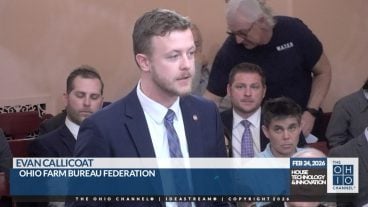
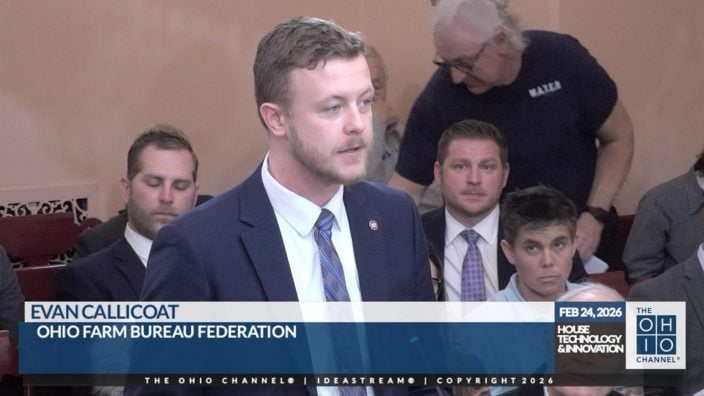
House Bill 646 would establish a Data Center Study Commission to examine the impact of rapid data center development across the state.
Read More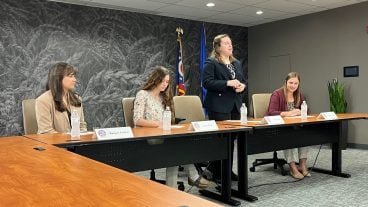
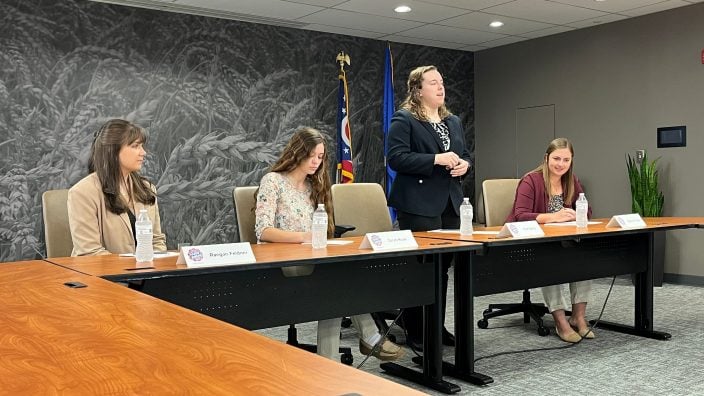
Collegiate Farm Bureau serves as a connection to current industry professionals and equips the next generation with the essential tools and resources needed to excel in their careers.
Read More

Ohio Farm Bureau members met one-on-one with state legislators and staff to discuss policy priorities impacting Ohio’s farms and rural communities.
Read More

Legacy nutrient deductions enable new farmland owners to claim deductions on the nutrients within the soil on which healthy crops depend.
Read More

Farmers, agribusinesses and community members are encouraged to nominate their local fire departments for Nationwide’s Nominate Your Fire Department Contest through April 30.
Read More

Introduced by Sen. Paula Hicks-Hudson, SB 120 would establish the Urban Farmer Youth Initiative Pilot Program.
Read More

Gases, vapors, and fumes can all create risk. How can we measure and protect ourselves from them?
Read More